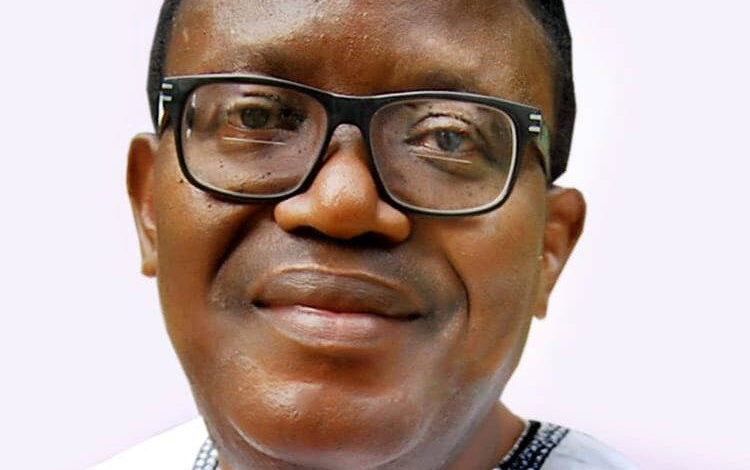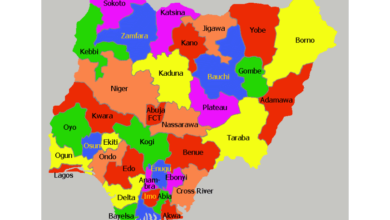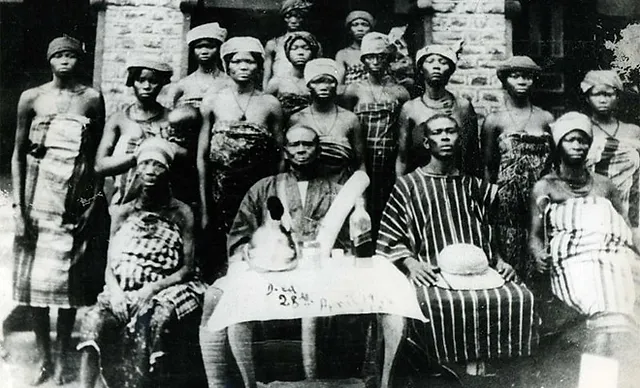Bene Madunagu: Intellectual, mother, botanist, leftist-feminist and revolutionary socialist

by Owei Lakemfa
The Left Movement in Nigeria gained two of its best known leaders in 1973. Edwin ‘Eddie’ Ikechukwu Madunagu was a 27-year-old postgraduate student of Mathematics, specifically Differential Equations and Functions of a Complex Variable. He was in the University of Lagos, UNILAG, and had joined the Nigerian Youth Action Committee, NYAC.
In UNILAG, that same year, he met a 26-year-old postgraduate student of Botany, Benedicta ‘Bene’ Michael Afangide and immediately drew her into the movement. The following year, they were with the Society for Progress, a radical youth organisation led by high school teacher, Olu Adebayo.
That same 1974, Bene and Eddie were with the Anti-Poverty Movement of Nigeria, APMON. It was the period of the Public Service Review Commission headed by Jerome Udoji, hence it became known as Udoji Award. APMON got information that, under it, the military regime led by General Yakubu Jack Gowon had approved humongous salary increases for members of the armed forces. It published the new military salary, and members of APMON, including Eddie, were in January 1975, clamped into detention without trial. Students in campuses across the country went on nationwide demonstrations to protest Eddie’s arrest and demanded that the regime stepped down. One of the student leaders, Najeem Jimoh, wrote that: “The mobilisation of the leadership of the student unions nationwide to join our cause was easy because the couple (Bene and Eddie) had always identified with us students…Bene was the great inspiration of our efforts.” Eddie was released in the fifth month and reinstated to his UNILAG teaching job.
In 1976, they joined the Revolutionary Movement for the Liberation of Nigeria, REMLON. This was also the year they got married and undertook one of the most dangerous tasks in their lives: a plot to overthrow the Nigerian state. For this, Eddie resigned from UNILAG and went underground with others. As they planned an armed struggle to carry out a socialist revolution, the revolutionaries were embedded amongst the peasantry in Ode-Omu, now in Osun State. Eddie, to the peasants, was an Ijesha man. You can imagine their reaction when they later found out that he was not even Yoruba.
While being part of the plan for an insurrection, Bene, that year, transferred her services from UNILAG to the University of Calabar, UNICAL. When the insurrection plan fell through, Eddie joined Bene in UNICAL. That 1977, they jointly founded a revolutionary students movement on campus called the Movement for Progressive Nigeria, MPN. One of their protégées, a then 21-year-old student, Offiong Offiong Aqua, emerged the pioneer President of the UNICAL Students Union.
In the April 1978 ‘Ali-Must-Go’ national students protests against the commercialisation of tertiary education, Aqua was fingered as one of the five ring leaders. He was detained without trial for months and expelled. Bene and Eddie were identified as the mentors of Aqua and providing inspiration for the protests. They were both dismissed from their jobs along with nine other lecturers and administrators in other tertiary institutions. Also dismissed was Bassey Ekpo Bassey, Editor of ‘Chronicle Newspapers’ and a close comrade of Bene and Eddie in Calabar.
It must have been quite tasking for a couple with Ph.Ds to be out of work and be unemployable for three years because the state so dictated.
In 1981, the year they were reinstated, Bene and Eddie participated in founding the National Democratic Movement Against Fascism, NDM, to tackle the growing fascism under the Shehu Shagari government. That administration had fallen on campuses like a hurricane, sweeping dozens of student leaders out of schools like the Bayero University, BUK, and the Ahmadu Bello University, ABU, while also smashing the leadership of the newly established National Association of Nigerian Students, NANS.
It was part of the efforts to stem this tide and resuscitate the NANS that led the radical national student movement, the Patriotic Youth Movement of Nigeria, PYMN, to send a two-person delegation round some campuses. Comprising then University of Ife Technology student, Femi Fatonode and I, our mission to UNICAL was to meet Bene and Eddie and ask them to link us with members of the MPN. It was on that mission we established contacts with the MPN leader, Kayode Komolafe, known on campus as Komo. Subsequently, the MPN sent two of their cadres, Chris Mammah and Eddie Igharo to the 1981 NANS Convention in the University of Benin, and they emerged respectively as the President and Secretary General of NANS. Those protégées of Bene and Eddie established the radical foundations of NANS which sustained the student movement through the Shagari administration and the brutal military regimes of Buhari, Babangida and Abacha.
The Marxism of Bene and Eddie is centred on social justice, humanism, freedom, internationalism and anti-sexism. In 1981, fierce debates on the rights of the woman boiled over in ABU leading to a national conference in that university from May 27-28, 1982. Two of the papers accepted at that heated conference were by Bene and Eddie. They made a joint presentation on “Conceptual Framework and Methodology: Marxism and the Question of Women’s Liberation.” They posited that the oppression of the woman in the nuclei family is located, first in her role as housewife performing socially necessary, but unpaid, labour. Secondly, as a mother, in which her role “as child bearer is exploited to perpetuate her social inequality with men.”
A socialist revolution, they argued, would not necessarily lead to women emancipation, so women liberation must be integrated into the struggle for socialism.
In a separate paper: “Contemporary Positions and Experiences of Women”, Bene argued that women oppression is in addition to the oppression of the mass, and neither can be liberated without the other. One salutary outcome of that conference was the establishment of a radical women movement called the Women In Nigeria, WIN. In a joint 1986 paper with great women champion, Altine Mohammed, Bene theorised that the strength of WIN is in straddling the class and gender fields, and accepting both males and females as members.
Bene with Grace Osakue in 1993, founded the Girls’ Power Initiative, GPI. Ten years later, she became the General Coordinator of the Development Alternatives With Women for a New Era, DAWN, a network of women from the global South working for democracy, gender and economic justice.
On April 30, 2021, Bene and Eddie ahead of the latter’s 75th birthday on May 15, jointly renewed their vows to socialist revolution in Nigeria and worldwide, and transferred their combined archives to the Nigerian Left.
On November 26, 2024, Bene joined the pantheon of international revolutionaries. The Left, her family and other lovers of humanity will gather in Calabar on Friday, January 17, 2025 to give Bene a final Red Salute.




